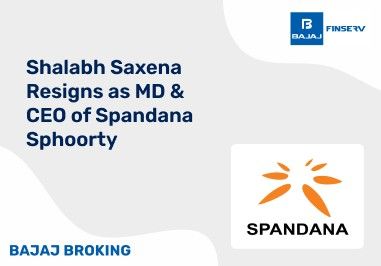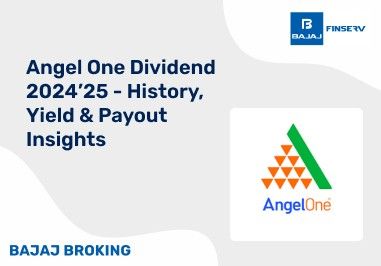BAJAJ BROKING
Tankup Engineers IPO is Open!
Open a Free Demat Account
Trade Now, Pay Later with up to 4x
Track Market Movers Instantly
What are Index Futures?
Stock Index futures are financial derivative contracts that allow traders to bet on the potential price fluctuations of a certain stock marketplace index, such as the S&P 500, NASDAQ, or Dow Jones Industrial Average. These contracts obligate the parties involved to purchase or offload the underlying index at a set price and date in the future.
Investors can take either long or short positions in index futures meaning, they anticipate the index’s value will rise (Going long ) or suggest they expect a decline (going short). These contracts are settled in cash, meaning physical delivery of the underlying index doesn’t occur. Instead, profits or losses are calculated according to the distinction between the contract’s initial price and its price at expiration.
Stock Index futures in India serve various purposes in the financial markets. They allow traders to hedge existing stock positions, protecting against adverse market movements. Additionally, they provide leverage, enabling investors to control a larger market exposure with a relatively small upfront investment. Index futures are a high-risk, high-reward instrument because they may magnify both potential profits and losses.
Index futures are widely used by institutional investors, speculators, and hedgers to manage risk and gain exposure to larger market fluctuations, making them an essential component of the global financial ecosystem.
How Do Index Funds Work?
Stock Index funds are a type of investment fund designed to track the performance of a specific market index. They work by pooling money from multiple investors to buy a diversified portfolio of assets that mirror the components of the chosen index. Here’s how index funds operate:
- Index Selection: Fund managers select a target market index to replicate. The goal is to mimic the index’s performance as closely as possible.
- Asset Allocation: The fund distributes client funds among a diverse range of securities representing the index’s constituents. For example, if it tracks the S& P 500, the fund will invest in the 500 firms that comprise the index.
- Static Management: Index funds, as opposed to actively managed funds, adhere to a passive investment approach. They aim to replicate the index’s performance rather than outperform it. This passive approach typically results in lower management fees.
- Buying and Holding: Index funds generally purchase and hold the assets in their portfolio. There is minimal trading, reducing transaction costs and capital gains taxes.
- Performance Tracking: The fund’s performance is evaluated against the chosen index. Any divergence is known as a tracking error, and index funds aim to minimize this to closely mirror the index’s returns.
- Low Expense Ratios: Index funds are noted for having low expense ratios, making them more cost-effective investing solutions than actively managed funds.
- Dividends and Income: Index fund investors get dividends and interest income from the underlying assets. These are normally provided on a regular basis to investors.
- Liquidity: Index funds are liquid because they are traded in the stock market, letting investors purchase and sell shares at current prices throughout the day.
Who Should Use Index Futures?
Investing in stock index futures in India can be a sound choice for a diverse range of individuals, depending on their financial objectives, risk tolerance, and investment inclinations. Index funds might prove advantageous for the following types of investors:
- Long-Term Investors: Index funds are frequently advised for long-term investors, such as those preparing for retirement since they give long-term exposure to the general market or specific sectors. They have the ability to deliver consistent returns at decreasing costs over time.
- Passive Investors: Index funds are a fantastic alternative if you want a hands-off investment style and do not want to actively manage your portfolio. They require minimal involvement as they aim to replicate the performance of an index without active stock picking.
- Beginner Investors: Index funds provide a straightforward and diverse entry point into the market for people new to investing. You may begin with a little investment and get exposure to a diverse selection of assets without the need for extensive market research.
- Cost-aware Investors: These funds are recognised for their modest-cost ratios, which can considerably lessen the impact of fees on your investment outcomes. Index funds are a wise alternative if you want to cut costs.
- Risk-Reluctant Investors: Index funds, by design, spread risk across multiple assets within an index. This diversification can help mitigate the impact of poor-performing individual stocks or sectors, making them a less risky option compared to investing in individual securities.
- Investors Seeking Market Performance: If your goal is to match the overall market’s performance rather than trying to beat it, index funds are ideal. They provide returns that closely track the chosen index, and you’re not aiming for outperformance.
- Tax-Effective Investors: Due to their low turnover, index funds often reduce capital gains payments, which can be tax-efficient, particularly for taxable accounts.
It’s important to note that while index funds offer benefits, they may not be the best choice for everyone. Some investors with specific goals or preferences may still prefer actively managed funds or individual stock picking. Examine your risk tolerance and financial goals to see if index funds are a good fit for your investing plan. Diversifying your investing portfolio with a mix of assets, including index funds, is also a good idea.
The Benefits And Drawbacks Of Investing In Index Futures
Investing in index funds has a number of benefits and drawbacks that investors should consider when making investing decisions.
Advantages:
- Diversification: These funds allow for immediate diversification by holding a huge range of assets making up the base index. This reduces the impact of poor-performing individual stocks or sectors, lowering overall risk.
- Lower Costs: Index funds are known for their low expense ratios. Since they passively track an index, they involve minimal research and trading, resulting in lower management fees compared to actively managed funds.
- Simplicity: Index funds are easy to understand and require minimal management. They are an excellent choice for investors who prefer a hands-off approach and don’t want to actively pick and monitor individual stocks.
- Consistent Performance: Index funds seek to mirror the working of the index they are tracking. While they may not beat the market, they deliver long-term returns that roughly track the index’s performance.
- Liquidity: Index funds are very liquid since they are traded on stock exchanges. Throughout the trading day, investors may purchase and sell shares at current market values, giving flexibility and accessibility.
- Tax Efficiency: Because of their low turnover, index funds frequently generate smaller capital gains distributions, which can be tax-efficient, especially in taxable accounts.
Disadvantages:
- Limited Upside Potential: Index funds aim to match the market’s performance, so they won’t provide outsized gains. If you seek the potential for substantial returns, you may need to consider other investment options.
- Tracking Error: While these funds aspire to mimic an index’s performance, there may be slight discrepancies known as tracking errors. This can result from factors like transaction costs and imperfect replication.
- No Active Management: While the passivity of index funds is an advantage for some, it also means that they won’t adapt to changing market conditions or seize specific investment opportunities. Active fund managers may offer more flexibility in this regard.
- Inclusion of Poor-Performing Stocks: Index funds include all stocks or assets in the index, even those that may be underperforming. This means you’ll have exposure to both the winners and losers in the index.
- Market Downturns: Index funds will decline in value when the underlying index experiences a downturn. While diversification helps mitigate risk, it doesn’t eliminate the impact of market-wide declines.
- No Individual Stock Selection: If you have strong convictions about specific stocks or sectors, index funds won’t allow you to make individual stock picks.
Index funds are a valuable investment tool for many investors, especially those with a long-term and passive investment approach. They offer diversification, cost-efficiency, and simplicity. However, they may not be suitable for those seeking high returns or desiring active management. Consider your financial goals, risk tolerance, and investment strategy when deciding whether to invest in index funds or explore other investment options.
Conclusion
In summary, index funds offer simplicity, diversification, and cost-efficiency, making them suitable for long-term, passive investors. They closely mimic market returns with low fees, high liquidity, and tax efficiency. However, they may not provide high growth and lack active management, potentially not aligning with investors seeking greater returns or hands-on strategies.
Disclaimer: Investments in the securities market are subject to market risk, read all related documents carefully before investing.
This content is for educational purposes only. Securities quoted are exemplary and not recommendatory.
For All Disclaimers Click Here: https://www.bajajbroking.in/disclaimer
Share this article:
Read More Blogs
Disclaimer :
The information on this website is provided on "AS IS" basis. Bajaj Broking (BFSL) does not warrant the accuracy of the information given herein, either expressly or impliedly, for any particular purpose and expressly disclaims any warranties of merchantability or suitability for any particular purpose. While BFSL strives to ensure accuracy, it does not guarantee the completeness, reliability, or timeliness of the information. Users are advised to independently verify details and stay updated with any changes.
The information provided on this website is for general informational purposes only and is subject to change without prior notice. BFSL shall not be responsible for any consequences arising from reliance on the information provided herein and shall not be held responsible for all or any actions that may subsequently result in any loss, damage and or liability. Interest rates, fees, and charges etc., are revised from time to time, for the latest details please refer to our Pricing page.
Neither the information, nor any opinion contained in this website constitutes a solicitation or offer by BFSL or its affiliates to buy or sell any securities, futures, options or other financial instruments or provide any investment advice or service.
BFSL is acting as distributor for non-broking products/ services such as IPO, Mutual Fund, Insurance, PMS, and NPS. These are not Exchange Traded Products. For more details on risk factors, terms and conditions please read the sales brochure carefully before investing.
Investments in the securities market are subject to market risk, read all related documents carefully before investing. This content is for educational purposes only. Securities quoted are exemplary and not recommendatory.
For more disclaimer, check here : https://www.bajajbroking.in/disclaimer
Our Secure Trading Platforms
Level up your stock market experience: Download the Bajaj Broking App for effortless investing and trading













